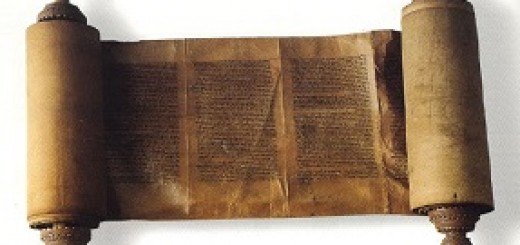To view as a PDF click here.
Sponsored by Steve Cohen in honor of Elimelech ben Chana HaKohen. May he have a speedy recovery!
From the exhortation of distancing oneself from forbidden relationships, our Sages learn the value of adding additional stringencies in one’s service of G-d. This Sicha discusses the parameters of this ideal and whether or not adding on personal restrictions is a purely positive motive.
In this week’s Torah portion the laws concerning illicit relationships are recorded. Though the verse only mentions that it is forbidden to enter into a physical relationship with immediate relatives, the Talmud understands that kin of a lesser degree are forbidden as well.
The verse[1] in the Parshas Achrei states the following: “And you shall observe My charge, not to commit any of the abominable practices that were done before you, and you shall not become defiled by them. I am the Lord your G-d.”
The Talmud comments on the Torah’s statement:
Text 1
And you shall observe My charge, [this means that you should] provide a charge to my charge.
Talmud, Yevamos 21a
Since the verse specifically includes the words, “And you shall observe My charge,” the Talmud understands that we must be exceedingly careful with illicit relationships and refrain even from those that are not mentioned explicitly in the Torah.
It is this verse that serves as the basis for the rabbinic ordinations meant to guard the Torah, in order that a person should not fall into actual sin.
Although certain things are not directly prohibited by the Torah, the Torah nevertheless mandates that a person should enact additional measures to guard these precepts.
This thought is expressed in books of Jewish Ethics in the following way[2]: “A person should separate himself from a hundred permitted gates so that he does not enter one gate that is forbidden.”
A purely positive ideal?
While it seems clear from the above verse that one should accept upon oneself extra stringencies to ensure that he does not sin, there seem to be other places in the Torah that suggest that this conduct is not positive.
A person may erroneously believe that one should not add any stringencies upon themselves that the Torah did not overtly command to be done.
There are two types of added prohibitions that are found in Jewish practice:
A) Rabbinic enactments
B) Stringencies that a person accepts on their own
Concerning both, a person can come to erroneous conclusions regarding their importance.
One may agree that rabbinic prohibitions are important, as the Torah itself proclaims,
Text 2
You shall not divert from the word they tell you, either right or left.
Devarim 17:11
However, such an individual nonetheless believes, that being that these dictates are only rabbinic, one need not be too careful regarding them. For, a person may come to the conclusion that these are not things that are prohibited because they are G-d’s will and these stringencies are all only arbitrary inventions of the rabbis.
Secondly, such a person may claim that one should not seek to add stringencies and forbid that which the Torah permitted. After all, the Talmud itself says, “It is enough what the Torah forbade.”
It therefore seems, claim those that wish to diminish the importance of added stringencies, that a person should not seek to prohibit that which Torah permitted.
Furthermore, not only does it seem that stringencies are not important, coming “only” from the rabbis, but in fact, there seems to be a good reason to keep the permitted matters as they are. The Talmud also states that a person will be judged for all the permitted things that they abstained from in this world.
Text 3
A person is destined to give a reckoning on all that his eyes saw that he did not eat.
Jerusalem Talmud, Kiddushin 4:12
Thus, not only does the Talmud say that one should not add extra stringencies, as mentioned above, “It is enough what the Torah forbade,” but on the contrary, when one forbids that which is inherently permitted, they prevent the chance that this object be elevated and will therefore need to give a reckoning as to why they abstained.
A person can therefore think that the conduct of adding stringencies is not a proper one, as it prevents an object from being elevated.
When more is less
In addition to all the abovementioned reasons that seem to negate the practice of adding stringencies, there is a fourth problem with this practice as well. When a person attempts to do more than they are able, they may be left with nothing.
Adding extra prohibitions to one’s Divine service can possibly push one away from doing even the basic precepts of the Torah. For, there is a natural tendency for a person to discard of the entirety of the rules if they become disillusioned with some of them. Once a person does away with the extra stringencies, they often throw out the rest.
The precedent for this is the first sin. G-d had commanded Adam not to eat from the Tree of Knowledge. It was Adam’s action of telling Chava not to touch it as well, and adding on this extra prohibition that eventually led to sin.
While G-d had told Adam[3], “But of the Tree of Knowledge of good and evil you shall not eat of it, for on the day that you eat thereof, you shall surely die,” when Chava repeats the prohibition to the snake, she says that she was forbidden to touch it as well.
Text 4
And the woman said to the serpent, “Of the fruit of the trees of the garden we may eat. But of the fruit of the tree that is in the midst of the garden, G-d said, “you shall not eat of it, and you shall not touch it, lest you die.'”
Bereishis 3:2-3
The cunning snake exploited this and he pushed her until she touched it. He said to her[4], “Just as there is no death in touching, so is there no death in eating.” Adding a prohibition that G-d had not said is what served as the catalyst for sin.
The Mistake
This point of view though, that added stringencies are in fact negative, is flawed. The reason is as follows:
In regard to the first two arguments concerning the validity of the enactments established by the Sages, one must realize that that these too are part of G-d’s desire.
All the mitzvos were given from one Shepherd, including those that are rabbinic. Just as G-d commanded that we keep the biblical commandments, He commanded as well that we follow rabbinic ones. Rabbinic ruling is not arbitrary; the Almighty is the One who commanded that one must listen our Sages. Thus, by following the directives of the rabbis, one is in fact fulfilling the will of the Almighty Himself.
This also includes the second category, those stringencies that one takes upon himself personally. This measure too, was commanded in the Torah when it prescribed, “And you shall observe My charge.”
This means to say, that in addition to the mitzvos that a person should sanctify himself with in that which is permitted to him, there is as well the instruction to accept additional measures of strictness to guard from sin.
One should therefore not diminish the value of adding personal stringencies regarding mitzvos, as this too is G-d’s will; He desires that a person should guard His mitzvos.
The Garden of Eden
There is a focal difference between the situation that the Jerusalem Talmud was speaking of when it said that a person will give a reckoning for all the permitted things that he abstained from—wherein adding stringencies is negative—and the situation in which we find ourselves in our present generation.
This can be understood based on understanding the difference between Adam in the Garden of Eden and a person’s standing today. The difference is as follows:
Adam was a vehicle purely for G-dliness and had no personal relationship to evil. He was hand-made by G-d, and did not inherently desire sin.
The Garden of Eden was also a G-dly place that could not tolerate sin or evil. For this reason, the moment that Adam sinned, he was banished from the Garden. Were he to have had an inherent connection to evil however, he would not have been able to be in the Garden to begin with.
He therefore had no reason to abstain from that which G-d did not command him. Since he was a veritable conduit for G-dliness, all his actions were holy. When he involved himself in the physical, he uplifted it, similar to the eating of kodshim or eating on Shabbos.
Therefore, adding stringencies to his daily activities would not only serve no positive purpose, but it would actually contain negative consequences; he would be losing out on the opportunities to turn the physical into the holy.
However, for a person that does have inherent negativity, they must indeed distance themselves from sin. It is therefore a positive and necessary measureto add on stringencies to their service of G-d.
So, for a person on the level of Adam, who was removed from sin, he must give a reckoning as to why he abstained from that which was permitted. For everyone else, however, adding extra stringencies is what prevents him from sinning and is indeed praiseworthy.
(Based on Likutei Sichos 1, Achrei, reworked by Rabbi Dovid Markel. )






















